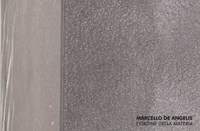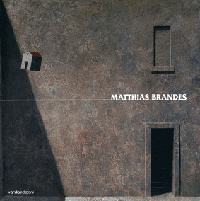Headline: Christian Zucconi | Leviathan
Authors / artists: Christian Zucconi
Texts: Emanuele Beluffi
Year: 2014
ISBN: 978-88-6057-225-7
Size: 16.5 × 23.5 cm
Binding: cartonato
Pages: 64
Price: € 25,00
ALSO AVAILABLE IN EBOOK VERSION:
Format: PDF
ISBN: 978-88-6057-226-4
Price: free download
[…] What is clear from the outset, once it has crossed the threshold of this former church, in front of large photographic panels depicting human types, not psychological types Jung, because man is rotten inside, and there is a cock to contemplate, but the body types, because the body is beautiful, maybe dirty, but nice: the photographic project Ash, expression in the other half of the same research by the sculptor Christian Zucconi, denotes a quasi-memory, l’abbandono, in this case the lost classic of the contemporary human, classicism whose son is still. De-frammentato, lost and no longer re-found, but set eternity in plastic pose of melancholy.
The iconographic reference is to the Attic pottery, bodies are covered with black ashes and there are, fixed and subsisting on a red background in a Pompeian marbling lava ex post to denote the classical sense of the body, a differAnza, exhibition in the economy of the exhibition, the same basic concept: l’uomo, body, meat.
As in the language of the sculptures are witnessing the passing of Michelangelo's concept of a single block, so the exhibition of the photographic series Ash wants to signify the concept of "man" that the age-Renaissance humanist - so the earlier period to the Renaissance - renewed after the Middle Ages (if you have not already done, go and read Lorenzo Valla). What remains, the Man, of classical culture of which he himself is the son? I do not know, hard to recognize him, can not see and do not see-you-. The chi, the sense of blindfolds.
The chi, exposure to diverse human types, to denote the sense of all humanity: the multitude in one person, symbolized by Leviathan, mythical representation which gave its name to the theological treatise of political philosopher Thomas Hobbes (which, like all good philosophers, was also spent with the magic and alchemy).[…]
Taken from the text, "How and why the man is a race in the process of appearance" by Emanuele Beluffi







